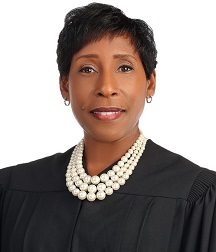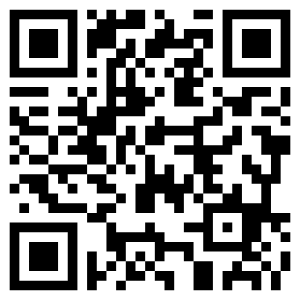Honorable Wende C. Cross
Hamilton County Courthouse
1000 Main Street, Room 380
Cincinnati, Ohio 45202
Fax Number: (513) 946-5864
Lawrenceene Howard, Bailiff
LHoward@cms.hamilton-co.org
Phone Number: 513-946-5860
Laura Mains, Staff Attorney
CrossLawClerk@cms.hamilton-co.org
Phone Number: 513-946-5862
Plea Forms
Guilty Plea Form (Reagan Tokes)
Guilty Plea Form (Non-Reagan Tokes)
Guilty Plea - Agreed Sentence (Reagan Tokes)
Guilty Plea - Agreed Sentence (Non-Reagan Tokes)
No Contest Plea Form (Reagan Tokes)
HAMILTON COUNTY RE-ENTRY DOCKET WEBSITE
The courtroom is a place of respect. All individuals appearing in Court are to treat all other individuals in Court with respect without regard to race, gender, religion, national origin, disability, age, sexual orientation, gender identity, or socioeconomic status.
Pre-Trials
Discovery Scheduling Conferences
The Discovery Scheduling Conference for most criminal cases will be set for a telephone conference. Counsel must be prepared to set a trial date and a final pretrial conference date.
Case Management Conferences
Case management conferences for most civil cases will be set for telephone conferences but can be changed to an in-person conference upon agreement of the parties. Counsel appearing at a case management conference must be prepared to set discovery and trial dates.
The parties should not wait for the case management conference before beginning to conduct discovery. Initial discovery including interrogatories and requests for production of documents should be served prior to the case management conference. Pursuant to Civ.R. 26(F), attorneys are to meet 21 days prior to the CMC and develop a discovery plan (download here) for filing 7 days prior to the CMC. Adherence to Civ.R. 26(F) will be strictly enforced.
Mediation
The parties may be referred to the Court’s alternative dispute resolution/mediation program by the Court or upon request. This referral may be made at the Case Management Conference, or at a later date upon motion by the parties.
Courtroom Procedures
Zoom Videoconferencing
Hearings in civil and criminal cases may be conducted via Zoom videoconferencing at the discretion of the Court for increased docket efficiency, access to justice by the litigants and for the effective administration of justice. Parties and counsel of record may join a hearing scheduled for video conferencing by clicking this link or scanning the QR code:
Join Courtroom 380 Zoom Meeting
Motion Practice
All motions must be in writing and accompanied by a proposed Order. Motions filed in civil cases are generally taken under submission without oral argument after briefing is complete. Oral argument in a civil case is set only upon request. Contact opposing counsel prior to contacting Judge Cross’s Staff Attorney to set any civil motion for oral argument. Motions and evidentiary hearings in civil cases are typically set in the afternoon. For motions to withdraw as counsel in civil cases, follow Local Rule 10(D) and call the Staff Attorney to schedule a hearing.
Hearings on motions in criminal cases are typically set in the morning. To set a hearing of on a motion in a criminal case, please contact the Bailiff.
A file-stamped courtesy copy of any motion and briefs filed in response should be provided to the court.
Discovery
The parties are encouraged to work together to resolve all discovery disputes. If discovery disputes remain, the parties are to contact Judge Cross’s Staff Attorney (civil) or Bailiff (criminal) prior to filing any motions to compel. A conference with the Court will be scheduled either via telephone, video, or in-person.
Calendaring and Continuances
All requests for continuances or extensions of time must be made in writing. Counsel should contact opposing counsel prior to filing the motion to determine whether the motion will be opposed. When requesting a continuance, parties should provide the Court with a specific date for the continuance, preferably with the concurrence of opposing counsel. Counsel must have a valid reason for requesting any continuance. Trial dates are continued only in exceptional circumstances and only by the Court.
Final Pretrial or Settlement Conference
A formal pretrial is scheduled three weeks prior to trial. Each party must file a pretrial statement no less than one week prior to the final pretrial. The final pretrial statement should provide the Court with a brief synopsis of the case, the status of any settlement negotiations, the expected length of trial including the number of potential witnesses, and any special issues or trial needs anticipated.
All parties and chosen representatives must be present at the final pretrial with full, final, and immediate settlement authority. If the real party in interest is an insurance company, corporation, common carrier, or other artificial entity, then the chosen representative must be the person with full, final, and immediate authority to negotiate and enter into a binding settlement agreement as to all claims.
In civil cases, the Court will schedule a settlement conference or pretrial conference upon the request of the parties.
In criminal cases, the Court will discuss a potential plea resolution if requested by both parties.
TRIALS
In accordance with Civ.R. 6, the Court orders that any Motion in Limine is to be filed at least 21 days before trial. Any response in opposition is due 14 days thereafter. No Reply shall be permitted.
Jury Trials
Parties shall submit trial briefs and jury instructions, no later than fourteen (14) days before trial. Trial briefs are to include: a statement of the facts; a discussion of the controlling law; any stipulations; witness list along with a brief description of the subject matter of the testimony of each witness; exhibit list containing a brief description of each exhibit. Witnesses or exhibits not listed in the trial brief shall not testify or be introduced at trial absent a showing of good cause.
Counsel must confer with one another with respect to the proposed jury instructions, with a view to reaching agreement on instructions to be requested. The instructions agreed upon by all counsel shall be identified. Disputed instructions shall likewise be identified along with separate citation to legal authority for each. Counsel for the plaintiff shall be responsible for ensuring that a copy of the proposed jury instructions and verdict forms are emailed in word format to the staff attorney at least fourteen (14) days before the scheduled trial date.
Parties in civil cases are required to confer with one another and provide the Court with a brief statement of the case to be read to the jury by the Court prior to opening statements pursuant to Civ.R. 47(A). The statement should be brief and informative and not adversarial in nature.
Exhibits shall be bound and marked before trial and submitted to the court prior to trial. Each party shall include as one of their exhibits the curriculum vitae of any expert(s) that may be called to present evidence or testimony at trial for the use of the court.
All possible stipulations are to be made prior to trial.
The Court and counsel conduct voir dire. Each side is given ample but reasonable time to conduct voir dire. Jurors are permitted to take notes but shall not be permitted to ask questions during trial. Post-verdict, attorneys are permitted to talk to jurors with the jurors’ consent.
Bench Trials
Parties shall submit trial briefs, motions in limine, no later than fourteen (14) days before trial. Trial briefs are to include: a statement of the facts; a discussion of the controlling law; any stipulations; witness list along with a brief description of the subject matter of the testimony of each witness; exhibit list containing a brief description of each exhibit. Witnesses or exhibits not listed in the trial brief shall not testify or be introduced at trial absent a showing of good cause. Opposing briefs to motions in limine shall be filed no later than seven (7) days before trial.
Exhibits shall be bound and marked before trial and submitted to the court prior to trial. Each party shall include as one of their exhibits the curriculum vitae of any expert(s) that may be called to present evidence or testimony at trial for the use of the court.
Sentencing
Sentencing Memorandums are highly encouraged and should be filed with the Court no later than 3 days before the sentencing hearing. A file-stamped courtesy copy should be provided to the court.
Courtroom Etiquette
Punctuality, professionalism and civility are required at all times in the courtroom. Attorneys should stand when addressing the Court, questioning witnesses, and when objecting. If a case is in progress, attorneys should quietly wait for the Bailiff or Staff Attorney to approach.
If an attorney is going to be late, please call.


